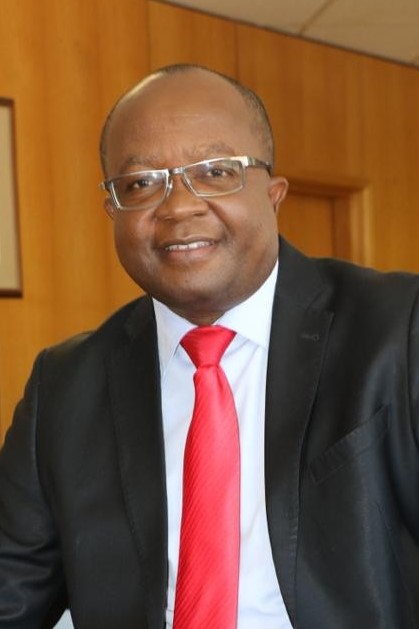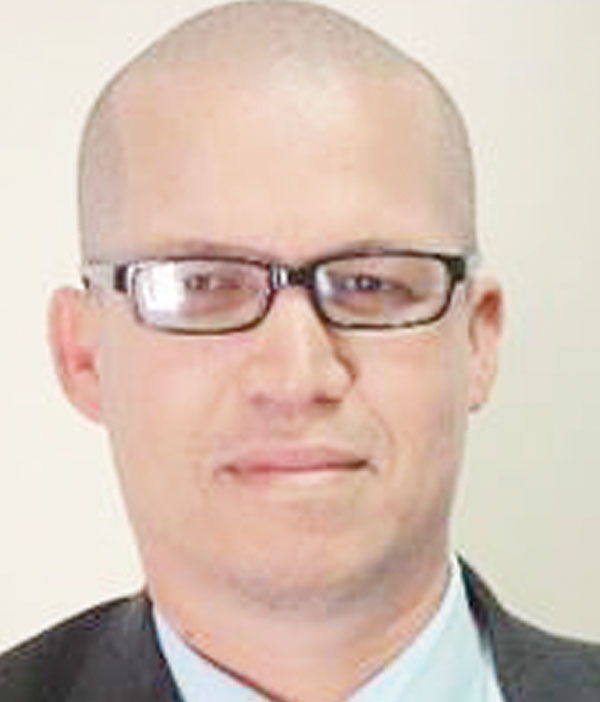
Promoting the implementation of SDGs through effective communication

By Obeth Kandjoze
Director General of the National Planning Commission.
Namibia is a resilient nation with a great future and real determination, a young vibrant workforce and natural resources that powers future socio-economic development.
The Government of the Republic of Namibia spearheaded by National Planning Commission (NPC) and in conjunction with all Namibians, laid out the roadmap for the future of the country, through Vision 2030 and NDPs. Little did we realise that the old adage of ‘best laid plans…’ was to manifest itself in a way that had not been seen for generations.
COVID-19 reared its head and its rapid spreading created a global pandemic within a matter of months. The NPC’s mission is to; plan, prioritise and direct national development through effective coordination, monitoring and evaluation by providing advisory services leading to sustainable socio-economic development. Fulfilling this mission became a lot more challenging in 2020.
We collaborate with Offices/Ministries/Agencies, as well as international and regional entities, all with the goal of improving socio-economic development in Namibia across the board and for all Namibians. Implementing programmes and plans such as Namibia’s fifth iteration of the National Development Plan, as well as more broadly the United Nations’ Sustainable Development Goals (SDG’s). Namibia has domesticated the SDGs by aligning it to the National Development Plans and currently NDP 5, with the pandemic several of the SDG’s came into stark focus. All of the SDG’s are important, nevertheless we sometimes need to focus on specific goals if the situation and circumstances demand it. This is the most effective way to best present the challenges and minimise the severity and impact of Covid-19.
The SDG’s that focus on basic needs have taken the lead this year, requiring a framework to be created to fully engage on the following SDG’s:
The reason for focusing on these specific SDG’s during the COVID-19 pandemic is because these were the most pressing issues facing our citizens. Loss of livelihoods during the severe economic downturn could lead to hunger and more people falling into poverty, if not countered methodically and swiftly during the pandemic. The health crises also heightened the demand for good sanitation and clean water for people to be able to sanitize and maintain high standards of hygiene. Namibia besides needed to find creative ways in which to keep pupils engaged in education.
These demands meant that other less pressing activities and plans had to be put on hold. This wasn’t stress-free while there are so many plans and activities that need to be actioned for the betterment of our citizens. Sometimes leading from the front means taking the tough decisions to deal with the immediate challenges, the head needs to lead and not the heart. It requires a steady hand and leadership from all of us at NPC, and from the other stakeholders.
At the same time not losing track of what is happening on the ground and to the people of this great nation. Planning for the long term is incredibly admirable, but if you cannot be sufficiently flexible to take care of pressing issues and challenges the long term will become irrelevant. This has meant a juggling act for all involved and for cool heads to prevail whilst constantly socially distancing at the same time. No mean feat.
Conceiving, implementing and executing any programme on a national scale, whatever the population’s size, is a massive and costly undertaking. Leaders are tasked with many responsibilities while executing activities and spending money. If, nonetheless, this is done without a proper mission, vision and a systematic approach we could be in danger of potentially ‘winning the battle but losing the war.’
The global outbreak of coronavirus (COVID-19) has created significant challenges for leaders at all levels across the world and here in Namibia. The economy has slowed down, while some extreme measures have been taken by political and governmental actors to control the spread of the virus in order to avoid economic disaster. Leaders have been forced to reinvent their leadership practices as they face new demands and challenges.
Organisations, Government and in no small part, the Namibian public are constantly working to ensure that no one will be left behind neither during this pandemic nor in any future potential crises.
The United Nation’s 2030 Agenda saw UN Member States pledge to ensure “No one will be left behind” and to “Endeavour to reach the furthest behind first.”
This principle runs through all plans made and executed by the Namibian Government and at NPC. It is the bedrock of the Sustainable Development Goals. At the same time, we need to be constantly aware of looking beyond and at a post-pandemic world, anticipating what needs to happen in the long-term and plan accordingly. Whilst never losing sight of our development activities that are aligned to the SDG’s.
One of the disastrous side-effects of locking down the country was the lack of income, especially within the informal sectors. Restrictions in the trading of goods and services in informal markets or sales of foodstuff had a huge impact on people’s livelihoods. The Namibian Government realized this would be a major issue and crafted the Emergency Income grant (EIG). Government and relevant organisations and leaders prioritised while fast-tracking actions to assist Namibians that needed it most.
Taking care of their immediate and urgent food-security and other needs and thereby engaging in several of the SDG’s. Ministers, Directors of SOE’s, Banks and other stakeholders worked hand in hand to reach the common goal of getting the EIG to the eligible recipients within a matter of weeks, when they needed it most. Truly a remarkable feat and an example of what collective leadership can accomplish.
Getting help to those most affected in a well thought out and process-driven procedure tests true leadership. It’s comfortable to be a leader when it is all plain-sailing, yet when you need to truly step up as is the case with COVID-19, leadership takes on a whole different meaning and sense of urgency.
This is something that management books and seminars cannot prepare you for. The leadership challenge that this pandemic has thrown up is unlike anything I’ve seen in my more than 20 years professional management experience. It has brought invaluable lessons for ‘leadership-in-the-rough’ that will from now on be part of all our planning, roadmaps whilst we navigate the new reality together.
Whilst constantly being mindful to ‘Leave no One Behind’ and consistently and effectively execute the plans and programmes set out by Government in alignment with the Sustainable Development Goals.









































